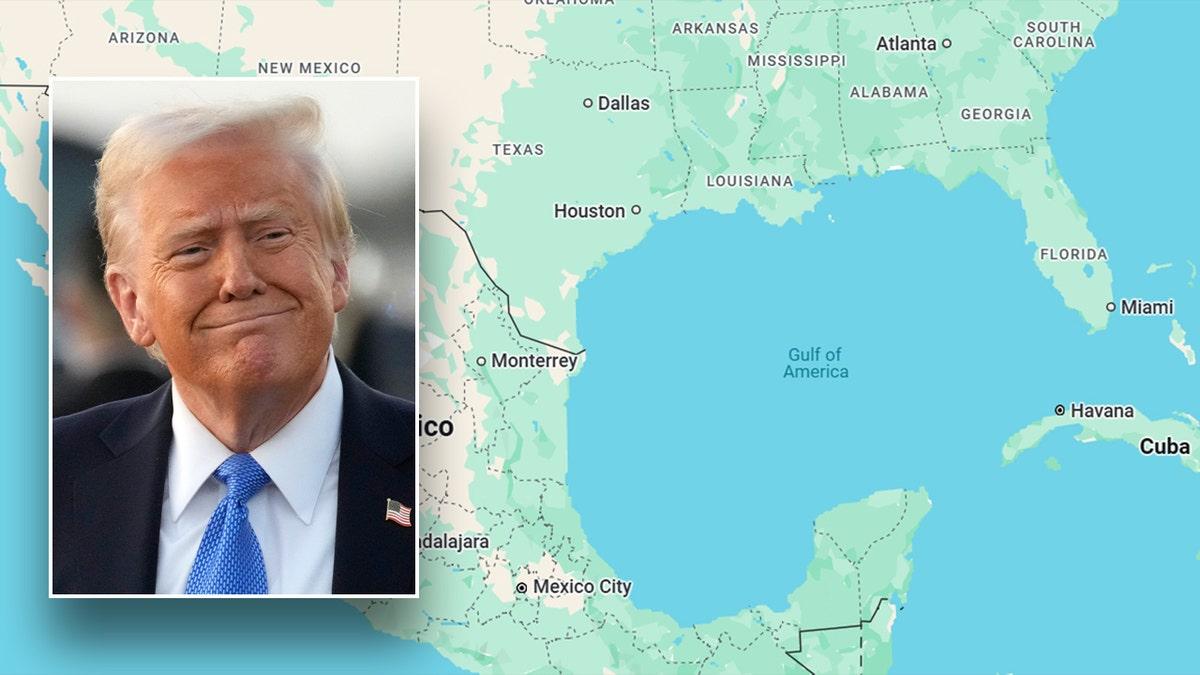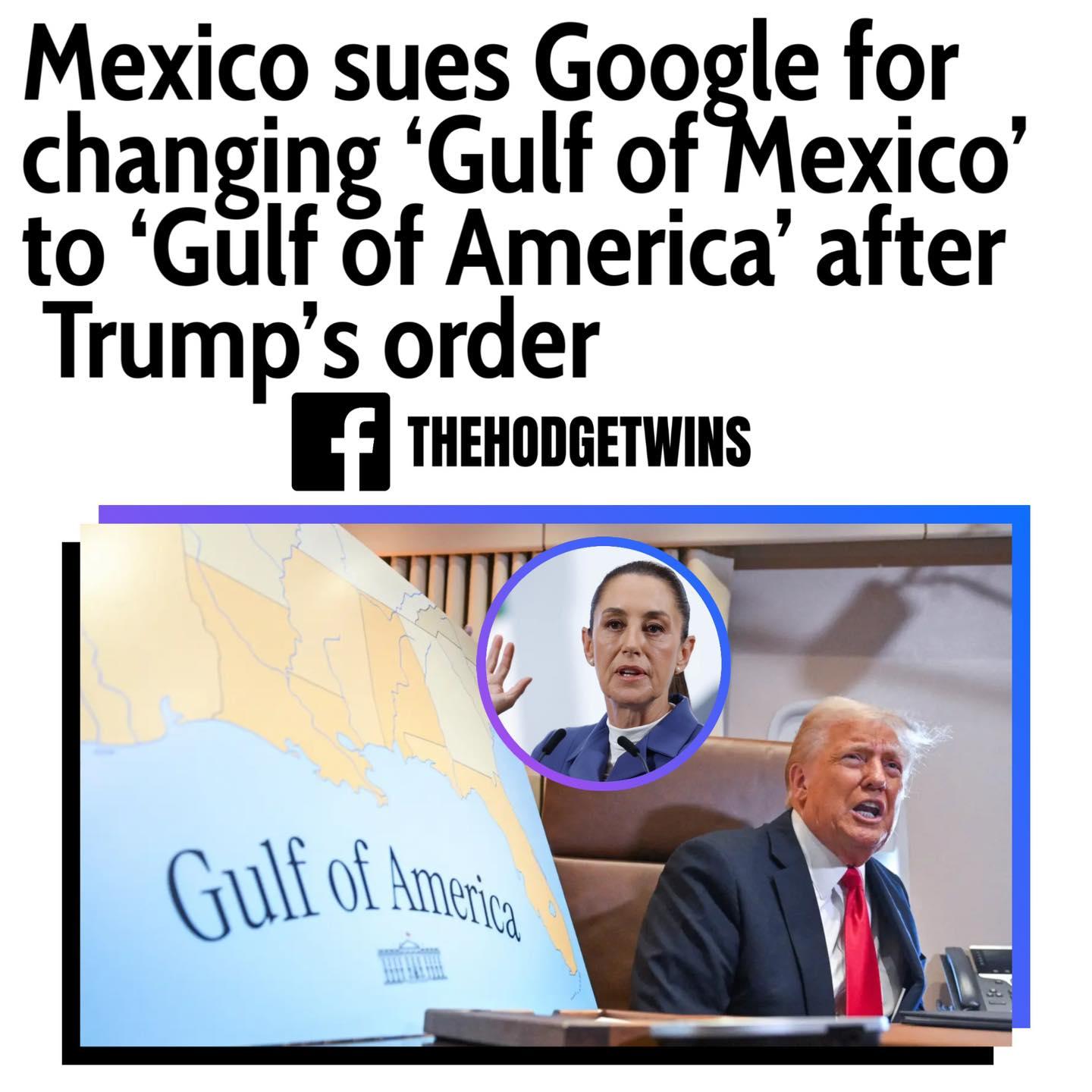Mexico Sues Google Over ‘Gulf of America’ Name Change on Maps
Mexico has filed a lawsuit against tech giant Google for relabeling the Gulf of Mexico as the “Gulf of America” on its Maps platform for U.S. users, following an executive order by U.S. President Donald Trump. The legal action, announced by Mexican President Claudia Sheinbaum on May 9, 2025, escalates a dispute that began in January when Trump ordered the name change, prompting Google to alter its maps. The move has sparked diplomatic tensions and widespread debate over sovereignty and international naming conventions.

Background of the Dispute
On January 20, 2025, Trump signed an executive order renaming the U.S.-controlled portion of the Gulf of Mexico to the “Gulf of America,” citing it as a tribute to “American greatness.” The order, which only applies within U.S. jurisdiction, affects approximately 46% of the gulf’s waters, with Mexico controlling 49% and Cuba 5%, according to Sovereign Limits. Mexico has consistently argued that the name change should not extend beyond the U.S. continental shelf, which spans roughly 22 nautical miles from the U.S. coast.

Google responded by updating its Maps platform: U.S. users see “Gulf of America,” Mexican users see “Gulf of Mexico,” and users elsewhere see “Gulf of Mexico (Gulf of America).” Mexico’s Foreign Relations Ministry sent multiple letters to Google, urging the company not to apply the “Gulf of America” label to Mexican or Cuban waters. In February, Google’s Vice President of Government Affairs, Cris Turner, defended the policy, stating it aligns with the U.S. Geographic Names Information System (GNIS) and the company’s practice of reflecting official government names.
Mexico’s Legal Action
President Sheinbaum announced the lawsuit during her daily press briefing, though she did not specify where or when it was filed. “What Google is doing is changing the name of the continental shelf of Mexico and Cuba, which has nothing to do with Trump’s decree,” she said, emphasizing that Mexico will not accept the renaming of its territorial waters. The Mexican government contends that Google’s policy violates national sovereignty by applying the “Gulf of America” label beyond U.S. jurisdiction.
The lawsuit follows months of warnings from Sheinbaum, who first threatened legal action in February after Google refused to revise its naming convention. Mexico’s position is rooted in international law, including the United Nations Convention on the Law of the Sea, which limits a country’s sovereign territory to 12 nautical miles from its coastline. The Gulf of Mexico, named since the 16th century, is recognized by the United Nations, and Mexico argues that no single nation or private entity can unilaterally rename an international body of water.
Political and Public Reactions
The controversy has fueled tensions between Mexico and the U.S., already strained by Trump’s threats of tariffs and mass deportations. Sheinbaum has taken a defiant stance, once sarcastically suggesting that the U.S. be renamed “Mexican America” in reference to historical maps predating the 1848 Mexican-American War. The dispute has also galvanized U.S. politics, with House Republicans passing the Gulf of America Act on May 8, 2025, by a 211-206 vote to codify Trump’s order. The bill, sponsored by Representative Marjorie Taylor Greene, faces an uphill battle in the Democrat-controlled Senate.
Public sentiment, as reflected on X, is sharply divided. Some users praise Mexico’s legal challenge as a stand against overreach, with one post stating, “This is how you fight back!” Others support Trump’s order, viewing it as a patriotic gesture. Google’s decision to disable reviews of the gulf on its Maps platform came after users flooded the listing with negative feedback criticizing the name change.
Broader Implications
The lawsuit raises questions about the role of private companies in navigating geopolitical disputes. Google’s compliance with the U.S. order has drawn parallels to its handling of other naming controversies, such as reverting Alaska’s Denali to Mount McKinley on its maps after another Trump directive. Critics argue that tech giants wield outsized influence over global perceptions by altering geographic labels, while defenders of Google’s policy emphasize its reliance on official government sources like GNIS.
The dispute also highlights press freedom issues. The Associated Press faced White House restrictions in February for continuing to use “Gulf of Mexico” in its reporting, though a federal judge restored its access in April, citing First Amendment protections. The AP and other outlets, including The New York Times, maintain that the gulf’s historical name, used for over 400 years, should take precedence in international contexts.
What’s Next?
The outcome of Mexico’s lawsuit remains uncertain, as does its jurisdiction—whether it will be pursued in U.S. or Mexican courts. Legal experts suggest that Mexico may face challenges proving damages in a civil suit, but the case could set a precedent for how private companies handle international naming disputes. Google has not publicly responded to the lawsuit, though it previously expressed willingness to meet with Mexican officials.
As the legal battle unfolds, the Gulf of Mexico remains a flashpoint in U.S.-Mexico relations, symbolizing broader debates over sovereignty, cultural heritage, and the power of technology to shape global narratives. For now, Mexico’s lawsuit underscores its resolve to protect its territorial identity against what it sees as an overreach by both a foreign government and a tech giant.





